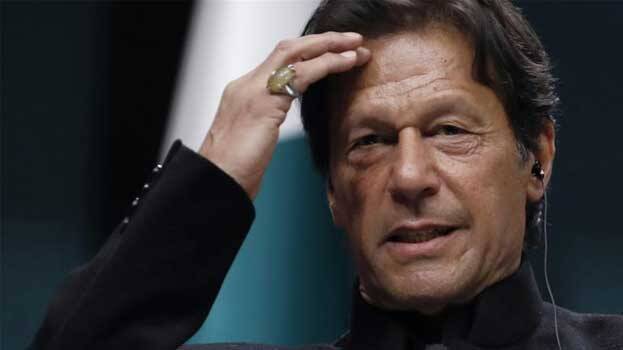The entire world is grappling with the Coronavirus Pandemic, and Pakistan too is struggling with the COVID-19 outbreak. But the Islamic Republic has bigger issues to handle- rising, unsustainable debt that is on the top of Imran Khan’s agenda, so much so that he is using COVID-19 fund to waive off debt.
According to a latest report by Pakistani daily The Express Tribune, the Imran Khan government has allowed diverting Rs. 10 billion from the COVID-19 fund to pay interest on loans that were taken to retire circular debt and approved terms of negotiations for debt restructuring to reduce electricity tariffs.
Pakistan’s power sector is in a bad shape, and according to a Finance Ministry handout, the Economic Coordination Committee (ECC) has allowed allocation of Rs. 10 billion from Prime Minister’s COVID-19 relief package as a makeshift arrangement for the payment of interest on the Pakistan Energy Sukuk II for a period of six months or amendment to the Nepra Act whichever is earlier.
The Imran Khan government has raised around Rs. 200 billion dollars through Energy Sukuk II to retire circular debt. Imran Khan wants to pass on the cost of debt servicing to power consumers in the country, but could not do so due to legal constraints. Now, Pakistan is considering amending the Nepra Act so that the burden of debt-servicing is shifted to the consumers.
The Pakistani consumers are headed towards exorbitantly higher tariffs. According to Pakistan’s Finance Ministry, currently the front-loaded tariffs of all the power generation units, whether private enterprises or public sector enterprises, have resulted in consistently higher consumer tariffs.
The Ministry added, “The objective of lowering this front-loading of the tariffs, through stretching out the debt terms from 10 to 20 years is possible through a synthetic refinancing structure without disturbing the existing debt structures of the pool of projects that can go into this programme.”
The power purchasers will pay on the basis of the stretched debt terms while the lenders will be re-paid as per the present schedule. The shortfall will be funded through issuance of debt. The power purchaser will find some relief in the first 10 years, that is, the original debt period. But in the next 10 years, the power purchasers will be paying the difference, as well as the interest over a period of 10 years.
The Finance Ministry stated, “It can be estimated that the impact of debt rescheduling could be about Rs 0.99 to 0.25 per unit in individual tariffs, leading to an estimated reduction of basket tariff at Rs0.67 in initial years, however, from 11 years to 20 basket price will be higher as per generation level at the stage in time.”
Stretching the debt repayment period from 10 to 20 years would mean that the power tariff would be lower than the prevailing tariff in the initial years, but in the next 10 years, additional burden will be imposed on the power purchaser.
Imran Khan’s latest move to transfer the Coronavirus fund for interest payment has faced opposition within the country. Pakistan People’s Party (PPP) has slammed Imran Khan for transferring the relief package. PPP Secretary Information Dr. Nafisa Shah called it a “criminal act”.
PPP demands details of embezzlement in COVID-19 Relief Fundhttps://t.co/U5zDdMZ7MN
— Pakistan Peoples Party – PPP (@PPP_Org) May 21, 2020
Others have pointed out how the latest move has exposed the deplorable situation of Pakistan’s energy sector. And overseas Pakistanis wonder if they should keep bringing in remittances into the debt-ridden economy of Pakistan.
Pakistan's energy sector is one hell of a mess. For example, the government will divert about Rs 10 billion *from* the COVID-19 relief fund, to pay interest on power-sector loans as a stopgap measure.https://t.co/k05VojzEGO
— shahrukh wani (@ShahrukhWani) May 21, 2020
https://twitter.com/anis_farooqui/status/1263389452723990528
The fact that Pakistan should move its Coronavirus relief fund to pay interest on loans shows how deeply entrenched the issue of unsustainable debt in Pakistan is. Coronavirus may be the biggest issue facing the world, but for Pakistan nothing is as dreadful as the overbearing debt situation in the country.
